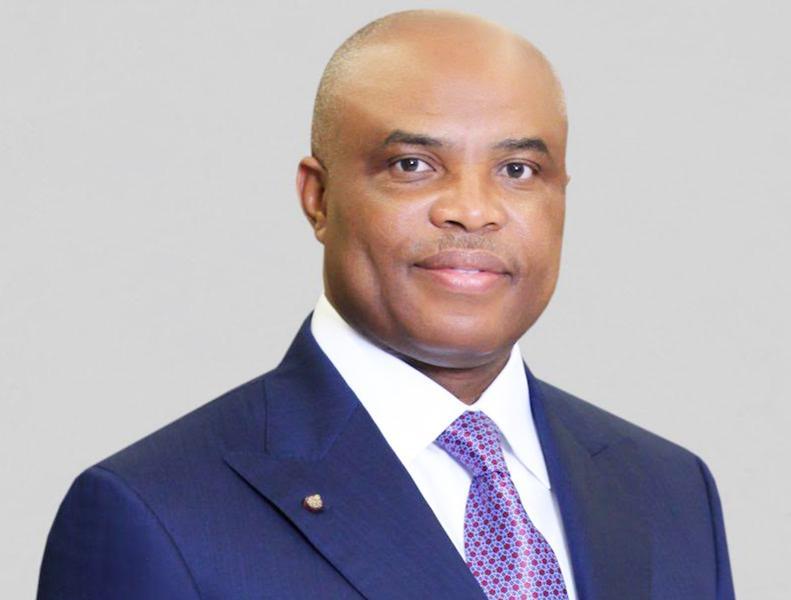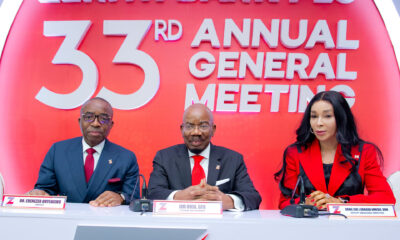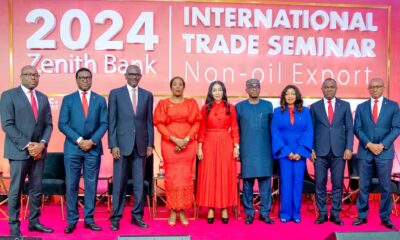By Hauwa Hazan-Baba
An American business magnate, investor, and philanthropist, Warren Edward Buffett in one of his famous quotes said: “Wall Street is the only place that people ride to in a Rolls Royce to get advice from those who take the subway”.
Recently, there have been several media publications in relation to loan facilities taken by Shebah E&P Limited to carry out drilling campaign in OML 108. These cases had been in various courts between London and Nigeria since 2014 until the latest initiated by Zenith Bank in October 2021. All these cases are in relation to the inconclusive drilling campaign in Ukpokiti oil field, offshore the Niger Delta.
The origin of the who brouhaha
Like Buffett said, “What we learn from history is that people don’t learn from history.” The origin of the matter is that in 2012 Shebah E and P obtained a $150million loan facility from a consortium of banks (AFREXIM/Diamond- now Access/Skye- now Polaris) led by AFREXIM. The facility was meant for work over and drilling campaign at the Ukpokiti field (OML 108) operated by Shebah E&P.
Incidentally, all these cases have received extensive media attention and each time one individual has been mentioned repeatedly as the debtor in these facilities.
That person is ABC Orjiako, an orthopaedic surgeon, who is also the Co-Founder and Chairman of Seplat Energy Plc. It is therefore incumbent on any investigative journalist to carry out an independent analysis of these debts and associated court cases to reveal the underlying facts behind all the Stories and whether Dr ABC Orjiako is “Guilty As Charged”.
It is pertinent to state that this current frenzy over the loan matter is not a fresh case but the same case that has been reported variously in the media since 2016.
Never a borrower and never utilized facilities as a person
The most astonishing fact in all this is that Dr Orjiako was never a borrower and never utilised the facilities as a person. He was merely the majority shareholder of Shebah and guarantor of the facilities. Dr Orjiako was not even a member of management of Shebah but stepped up to salvage the company by making payments to the banks using personal and family assets to liquidate the facilities. The banks disbursed the loan directly to the service providers of the company.
Hear this
Shebah drilled a successful horizontal well, the first of its kind in the offshore Niger Delta and tested 4000 barrels per day of oil and condensate production but encountered large gas reserves. The company then decided to find a solution to the huge Associated gas based on professional oil field best practices before continuation of the oil/ condensate production. The company required more funds to commercialize the gas to avoid excessive flaring while producing the discovered oil.
AFREXIM led consortium of lenders
It is worth noting that the AFREXIM led consortium of lenders, could not provide further facilities to Shebah to conclude the operations. In 2014, Shebah then approached Zenith Bank, which appraised the situation and provided a $250million loan facility fully approved by its board to salvage the situation. Zenith proposed to pay the consortium of banks $50million to reduce their collective exposure, enhance the facility to $350million, provide Shebah with additional funds to monetize the gas and produce the discovered oil. The enhanced facility would have had Zenith join and lead the syndicate with $250million, while the consortium of existing lenders would have reduced their exposure and stay at $100million (about $33million each).
Zenith requested to have a moratorium period of 9 months
Zenith further requested (in line with Shebah’s need) to have a moratorium period of 9 months to conclude the projects and extend the facility tenure to 5 years. This was meant to spread the cash flow and enable easy repayment of the enhanced facility.
Surprisingly, the AFREXIM consortium rejected the $50million offered by Zenith on the grounds that Zenith should not lead the syndicate and they were not willing to extend the tenure of the facility which was remaining about two and half years as at the time of Zenith’s offer.
Preparatory to monetizing the discovered gas, Shebah negotiated and executed a GSPA of $2.5billion for 20 years gas sale on a take or pay basis with the Nigerian Gas Company(NGC) as the gas offtaker supported by a payment bank guarantee in the sum of $70million from Zenith bank.
The AFREXIM consortium rejected all the efforts being made by Shebah and proceeded to file an action to call the facility in 2014 (just two years after final draw down). The call of facility ahead of the maturity triggered the default on the loan.
The Justice Phillips of the London High Court judgment
On 19 February 2016, Mr Justice Phillips of the London High Court delivered a judgment in favor of the AFREXIM consortium for the repayment of the $150M loan facility. The judgment creditors then registered the judgment in Federal High Court in Lagos and applied for enforcement of the judgment.
The defendants immediately opposed the registration and the enforcement of the judgment based on their convictions on rule of law and on the fact that they would like to negotiate an out of court settlement and pay back the loan under a restructured arrangement. This case is still life before an Honorable Justice of the Federal High Court Lagos. The court is awaiting the outcome on the settlement which will be entered as consent judgement.
Contrary to the Syndication agreement by the AFREXIM consortium, Polaris bank transferred its share of the judgement facility to AMCON. Notwithstanding the unilateral action by Polaris bank, AMCON initiated a fresh action in Federal High Court Abuja, not minding that the same case had already got a ruling in London and subject to a contested enforcement proceeding in the Federal High Court Lagos. It was by the case that AMCON filed that an Ex-Parte order was granted in 2019 which was widely reported in the press.
See what Orjiako has paid
Buffett’s saying goes that that, “If past history was all that is needed to play the game of money, the richest people would be librarians”. Orjiako has paid the following sums to the lenders: $89.3 million (out of a total principal of $150million) including $20million paid this year to the consortium of AMCON/AFREXIM/ACCESS toward the repayment efforts. This means that if his proposal is accepted by these creditors, the outstanding Principal amount would be $60.7 million. He had made a proposal to these creditors to accommodate Zenith bank in the distribution of the repayment, but they have not accepted this proposal, which would have prevented the Zenith bank action of October 2021.
In the case of Zenith Bank, ABC Orjiako has also paid back $54million (including proceeds of forced sale of his family Seplat shares by Zenith bank) out of the principal of $70m and is currently engaging the bank to negotiate an out of court settlement. This means that Dr Orjiako has paid a total sum of $143.3million ($89.3million plus $54million).
Why the misrepresentations of facts
Most stories read recently on this issue are unfortunately been used to misrepresent facts as they have portrayed an innocent person in a very bad light with enormous reputational damage.
It is important to note that these kinds of misrepresentations are misinforming the global investing community with its negative consequences for Nigeria. It would be recalled that Dr Orjiako has continued to lead Seplat Energy to its exponential growth attaining the enviable position as an indigenous Nigerian Independent Energy company listed in the London and the Nigerian Stock Exchanges, among many other feats.
Payments clearly show high moral duty and integrity
These payments are clear show of high moral duty and integrity to repay a loan Dr Orjiako did not utilise and for oil assets that are not generating any revenues. From the deluge of negative media reports, most of which misrepresent the matter, there is a strong impression that these are smear campaigns.
It was also revealed that SEPLAT where Dr ABC Orjiako is the Chairman is not involved in any of these matters what so ever contrary to the nuances in the media report. The SEPLAT board of directors being very strong in corporate governance had activated all governance and compliance processes and procedures to ensure that there are no breaches of any aspect of regulatory compliance or its governance policies.
Out of court settlement in the offering
There is information also that the parties maybe considering out of Court settlement of the commercial dispute. A positive outcome of such a settlement will bring the entire impasse to a final close.
In a completely different case, Access Bank versus Cardinal Drilling, ABC Orjiako unfortunately had a misfortune of being blamed for the Cardinal facility because he is seen as the alter ego of the company.
Dr Orjiako’s involvement was just as an investor in Cardinal where his company Shebah invested alongside Platform Petroleum and Maurel et Prom, all of who are founding shareholders of Seplat. Neither Orjiako nor other shareholders ever received dividend from Cardinal. All the equity investments were lost but again, curiously, only Orjiako was singled out for the smear campaign.
Miss Hauwa Hazan-Baba (BSc Econ, MSc Management) is an Economist and Public Affairs Analyst based in United States.


 Education4 weeks ago
Education4 weeks ago
 News3 weeks ago
News3 weeks ago
 Business3 weeks ago
Business3 weeks ago
 Technology3 weeks ago
Technology3 weeks ago
 Investment4 weeks ago
Investment4 weeks ago
 Investment3 weeks ago
Investment3 weeks ago
 Telecommunications4 weeks ago
Telecommunications4 weeks ago
 Banking Sector3 weeks ago
Banking Sector3 weeks ago


























